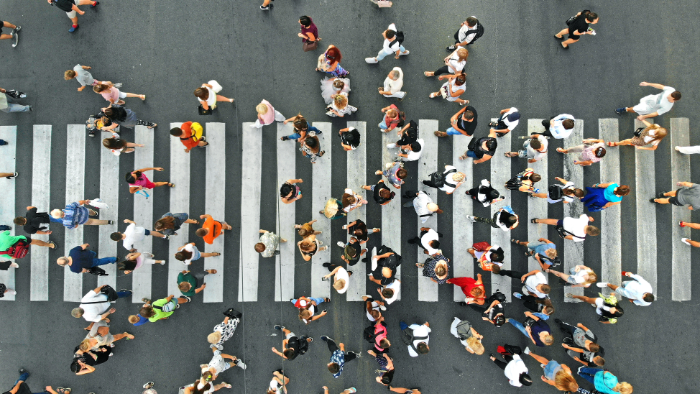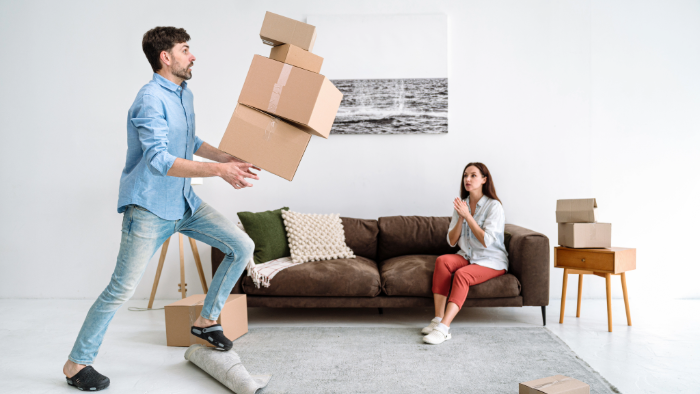Is Your Body Trying to Tell You You're Imbalanced?
This Article is part of the SoF Quick Read Series: Trimmed-down, real-life strategy guides for handling everyday balance moments. Lighter reads. Still grounded in science. Always worth your time, and linked to deeper articles for when the itch to learn arises.
Essential Points:
Frequent stumbles or clumsy moments aren’t just random, they’re early warning signs your balance system needs attention. Small tweaks in your routine can reboot your internal GPS and help prevent future falls.
Balance challenges like discomfort in crowds or hesitance on uneven ground reflect deeper coordination and sensory issues. These can be improved with simple, targeted daily drills that retrain your body and boost confidence.
Balance is a trainable skill, not a fixed trait, and it only takes 10 minutes a day to start improving it. With the right approach, you can rebuild strength, stability, and self-trust before something serious happens.
You Ever Just... Fall for No Reason?
There you are, coffee in one hand, keys in the other, walking like the put-together adult you pretend to be. Then boom. Out of nowhere, your foot catches on absolutely nothing, and you’re in a three-step stumble that ends with a dramatic flail and a pretend cough like "Haha yeah, meant to do that."
We've all been there. Sometimes you brush it off. Sometimes your pride takes a little tumble, even if you didn’t. But what if moments like that aren't just random? What if your body is trying to tell you something subtly?
Balance isn’t a given throughout life, it’s a superpower we all have that needs maintenance. It’s how you stay upright in a crowd, avoid wipeouts in the winter, and keep from bumping into door frames that definitely weren’t there yesterday. And when your body starts sending you little signals such as tripping, wobbling, and clumsiness you swear is new, it might be time to tune in before it sends something louder. Like a fall.
Let’s break it down. Here are a few signs your body might be whispering, “Hey, we’re a little off,” and what to actually do about it.
1. You Trip “Randomly”, But It’s Happening More Often
Sure, everyone stumbles now and then. But if you find yourself catching your toes on curbs, rugs, or your own feet more than usual, it’s worth paying attention. At this point it’s not “normal”.
What’s going on?
Tripping can signal a combo of weakened lower body strength, slower reaction time, or a decrease in something called proprioception, your body’s sense of where it is in space. Basically, your internal GPS needs a map update, and you probably need a muscle upgrade too.
Try this:
Spend 60 seconds a day standing on one leg (near a counter for safety, no tightrope walking yet)
If safe to do so, walk barefoot more often at home to reawaken those foot sensors and strengthen the foot stabilizing muscles
Add gentle calf raises, toe raises, and squats into your daily routine
Small things can re-tune your body's awareness and give it a chance to reboot that balance system before it throws you to the ground. If you catch it early enough, a little tune-up may be all you need. Wait long enough and you are looking at months of work.
2. You Avoid Crowds or Busy Environments (But Don’t Know Why)
Do you feel a little uneasy in crowded spaces? Maybe it's not social anxiety, maybe it’s your balance system asking for backup.
Why it matters:
Busy environments are visually and spatially overwhelming. Your brain juggles a lot to keep you upright: eyes tracking movement, ears gauging space through sound, feet adjusting weight, muscles attempting to fight for stability against shoulder checks. When one of those systems is slacking, your balance confidence dips, even if you don’t realize it consciously.
What to do about it:
Practice walking around your home with obstacles (books, furniture, etc.) while playing loud music to overwhelm your senses
Try basic coordination drills like head turns while walking; add some mental math for an extra kick of difficulty
Gradually challenge yourself with busy environments (like a calm grocery store on a weekday) to build tolerance, progress as you feel comfortable
Balance is trained just like strength, exposure and smart progressions matter.
3. You’re More Clumsy Than You Used to Be
You reach for a glass and knock it over. You bump your shoulder on the doorway. You can’t dance like you used to (okay, maybe that one's always been questionable).
Here’s what might be happening:
Balance and coordination naturally decline without use and refinement. This isn’t about age, it’s about disuse. If your daily movement has become more chair-bound and less varied, your body forgets how to make fine adjustments on the fly.
Your next moves:
Try a short balance-focused warm-up before workouts (or just before you leave the house) to prime your balance systems
Mix up your walking surfaces like grass, gravel, and soft carpet to challenge your sensory system and learn to adapt to shifting ground textures, especially when training barefoot for increased foot health as mentioned before
Incorporate playful movements like tai chi, dance, or even light parkour-style footwork for the adventurous (yes, really — start small)
Your coordination isn’t gone, it’s just on vacation. Time to send a reminder that it’s needed. More often than not it’s not about the years you’ve lived, it’s how you used those years that lead to your current problems.
4. You Feel “Off” When You’re Tired or Stressed
Ever notice that your balance gets worse when you’re burned out? You’re not imagining it. Sleep, stress, hydration, they all mess with your ability to move smoothly and stay grounded.
Why it matters:
When your brain is fried or your body’s in a stressed state, it cuts corners because it just doesn’t have the resources to waste. That often shows up as shakier movement, slower reflexes, and more mistakes. It’s not just in your head, it’s in your nervous system.
Support your system:
Prioritize sleep and hydration like your balance depends on it (because it does)
Take mindful pauses throughout your day, simple breathing exercises calm the system down and can allow you to focus more efficiently
Build in recovery habits like stretching or mobility work instead of pushing through every day
Balance is holistic. A wobbly body can come from a wobbly routine and mind.
5. You Just Don’t Feel as Confident Moving Anymore
This is the big one. Whether it's walking at night, stepping off curbs, or being in new environments, if you feel hesitant, that matters. Confidence isn’t just a feeling; it reflects your brain’s trust in your body’s ability to react well.
Here’s how to rebuild that trust:
Start small with daily drills, step up and down a small step 10x, balance while brushing your teeth (the tried and true), or walk in a straight line heel-to-toe like you’re on a sobriety test (stone cold sober, of course)
Use video, a mirror, or a friend to check posture and alignment, your brain loves feedback and learns from it well
Celebrate your improvements because you earned them
Balance confidence is built, not born. And you can build it back with daily practice
Final Thoughts: You’re Not Broken, You’re Just Ready for a Balance Tune-Up
If you nodded along to any of these, good. That means your self-awareness is working. The truth is, most people ignore these early signals until something serious happens. You don’t have to be most people, and I encourage you not to be, because you aren’t average. You are a mover, shaker, and get it done-er (ignore the terrible grammar, you know what I mean).
Balance is a skill. You can train it, improve it, and regain the kind of movement confidence that makes life feel easy again. It literally takes 10 minutes a day to improve your balance, and that is researched back my friends. Start working it today and never lack confidence in your body again.
Want a plan that walks you through it step-by-step?
Check out the SoF Beginner to Intermediate Balance Program! It’s been designed to fully rebuild your balance, confidence, and coordination so you can move through life a little more boldly (and trip a lot less).







